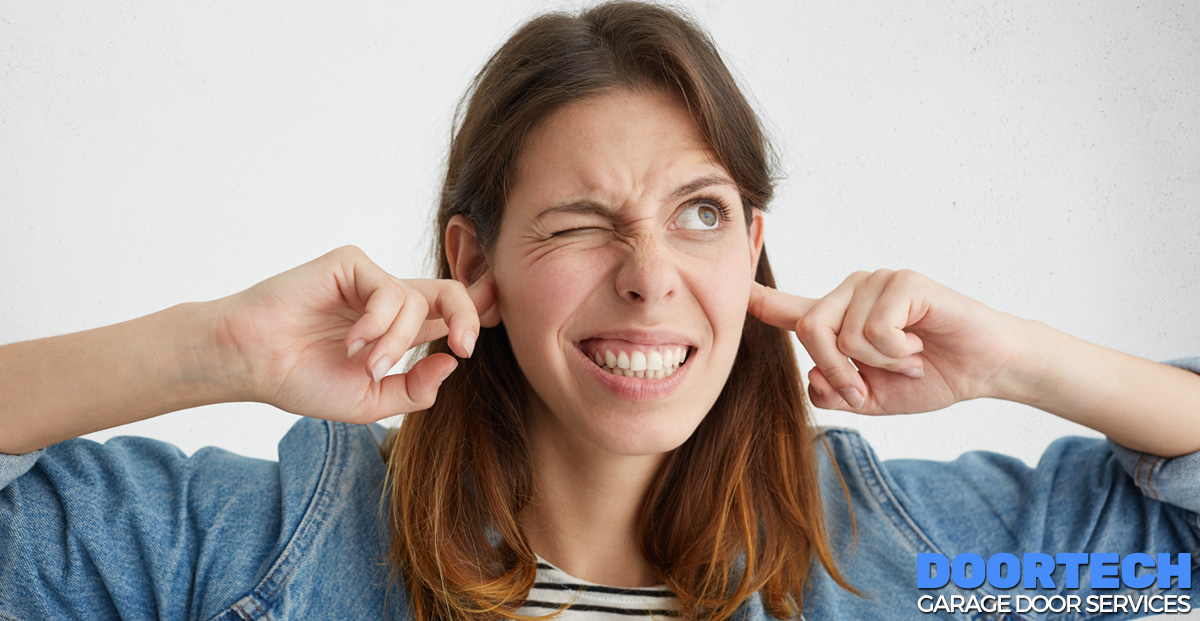 There’s nothing more annoying that noisy garage doors. You rely on your garage door for convenience and the security of your home. But when that door starts screeching, grinding, or making other noises, it can disrupt your peaceful mood. The good news is that noisy garage doors are usually easy to avoid with regular maintenance.
There’s nothing more annoying that noisy garage doors. You rely on your garage door for convenience and the security of your home. But when that door starts screeching, grinding, or making other noises, it can disrupt your peaceful mood. The good news is that noisy garage doors are usually easy to avoid with regular maintenance.
Today, you’ll learn the five most common causes of a noisy garage door and how to address them.
Here are the most common causes of garage door noise:
Bent Tracks
When tracks become misaligned, you may hear a rubbing noise as you try to open/close your door. If the tracks are severely bent, you may not even be able to open and close your door.
We can adjust your tracks, so they align correctly and return your door to a quieter operating condition. We will also check for any other loose parts contributing to the problem.
Loose Parts
Garage doors have many parts, all of which must work together to open and close the door efficiently. You need to check the rollers, hinges, nuts, bolts, chains, and tracks routinely to ensure nothing is loose and everything is in good operating condition.
Knowing the different parts of your garage door will help you identify wear and tear over time and when you need to replace or service parts. Checking for loose parts regularly will help maintain your door’s good operating condition.
Here Are Some Parts To Check Routinely
- Rollers and Hinges: The rollers keep your door in the tracks when opening and closing. Over time, they can become worn or damaged. When this happens, you may hear high-pitched squeaking or grinding noises. The hinges connect the panels in your door, so you have a solid door when closed. Because these bend every time a door opens or closes, the screws holding them in place may become loose, or the hinge itself may need lubrication.
- Chain: A chain connected to your garage door opener controls the door as it opens and closes. Over time this chain can stretch, causing it to become loose. When this happens, you may hear a slapping sound and see jerky door movements. Loose chains can also impact wear on the rollers.
- Nuts and Bolts: Loose nuts and bolts can vibrate and loosen over time, causing your garage door to rattle when opening and closing. These small parts can make loud noises when under the stress of moving a heavy door.
Poor Lubrication
Routine lubrication is essential for your door to run quietly and efficiently for years to come. Worn rollers and hinges will rub together and make a lot of noise without regular lubrication. Depending on the part affected, you may hear squeaking, rattling, or grinding sounds.
Unbalanced Doors
Unfortunately, doors occasionally become unbalanced. This happens when the springs have too much or too little tension to counterbalance the door’s weight. Spring issues can also affect the door opener, tracks, and hinges because of the added stress.
This can be highly hazardous, resulting in a snapped chain or spring. Calling a professional as soon as you notice a problem is prudent.
Improper installation and uneven settling of your home can also make the doors unbalanced. If your doors get stuck halfway, struggle to open and close properly, or you hear odd grinding, squealing, banging, or rattling sounds, you may need to have your garage door checked and repaired.
Home Acoustics
All garage doors make some degree of noise when they operate. Suppose your garage door appears to be in good operating condition but still sounds loud in your home. In that case, you may need to add some insulation or soundproofing to your garage to improve the acoustics and absorb sounds before entering your home.
Garage doors are heavy, and many are pressurized, making do-it-yourself repairs dangerous. A skilled homeowner can do some maintenance, but we are here to help with the more advanced repairs and regular maintenance.
Door Tech is here to help you diagnose and repair any issues with your noisy garage door. Contact us today to set up your appointment for an inspection!
